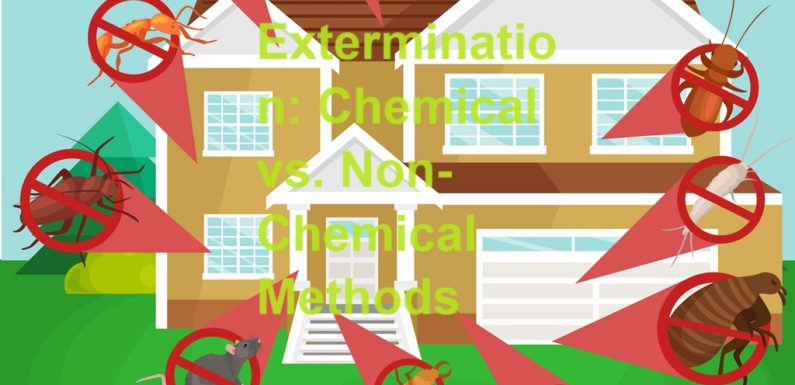
When faced with an insect infestation, choosing between chemical and non-chemical extermination methods is a decision that property owners must consider carefully. Each approach comes with its own set of advantages and considerations. Whether you’re dealing with ants or cockroaches, seeking guidance from professionals like those at AntExterminator.org can help you make an informed decision based on the specific needs of your situation.
Chemical Extermination Methods
- Rapid Effectiveness: Chemical insecticides often provide quick and effective results, swiftly eliminating many pests. This fast action can be crucial in situations where immediate relief is needed.
- Broad Spectrum Control: Many chemical pesticides are formulated to target a variety of pests. This broad-spectrum control can be advantageous when dealing with multiple insect species simultaneously.
- Applicator Precision: Professional pest control services can precisely apply chemical treatments, targeting specific areas and minimizing the impact on non-target organisms.
- Long-Lasting Residual Effects: Some chemical treatments have a residual effect, providing ongoing protection against re-infestations for an extended period. This can be particularly beneficial for preventing future infestations.
Non-Chemical Extermination Methods
- Environmentally Friendly: Non-chemical methods, such as biological controls or traps, are often considered more environmentally friendly. They avoid using harmful chemicals that may have unintended consequences on non-target organisms.
- Reduced Health Risks: Non-chemical methods generally pose fewer health risks to humans and pets. This is especially important in residential settings where occupants may have sensitivities to certain chemicals.
- Targeted Approach: Non-chemical methods allow for a targeted approach to pest control. For example, traps can be strategically placed to capture specific pests without affecting the environment.
- Sustainable Practices: Adopting non-chemical methods aligns with sustainable pest control practices. This approach focuses on long-term solutions that minimize the impact on ecosystems and reduce reliance on potentially harmful chemicals.
Considerations for Ant Extermination
- Identifying Ant Species: Professional services can help determine the specific ant species causing the infestation. Different ant species may respond better to either chemical or non-chemical control methods.
- Integrated Pest Management (IPM): Combining chemical and non-chemical methods under an Integrated Pest Management (IPM) strategy is often the most effective approach. This holistic method considers the unique aspects of each situation for optimal pest control.
Conclusion
The choice between chemical and non-chemical insect extermination methods depends on various factors, including the type of insect, the severity of the infestation, and environmental considerations. Consulting with professionals ensures that you receive expert advice tailored to your specific needs. Whether dealing with ant or cockroach exterminator Little Rock, a careful evaluation of the advantages and considerations of each method will lead to an effective and sustainable pest control strategy for your property.

